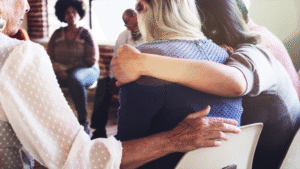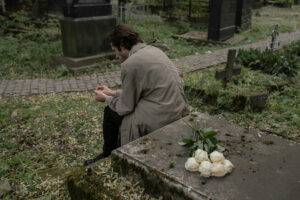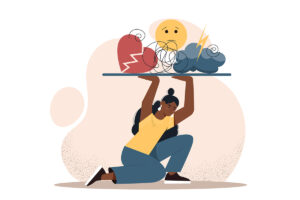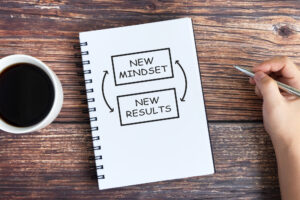In this guided meditation, Dr. Kate Truitt leads us to a healthy and empowered relationship with the idea of failure. She begins by asking us to welcome in havening touch and healing breath. Once we have reached a calm state, she asks us to imagine that we are standing in front of a board with failure written in big block letters.
Then, she asks our mind to wander and think about our reaction to the word failure. Does it have a color, feeling, or weight to it? What does the construct of failure look like in your mind’s eye? Are these associations that we have made or that our circumstances or surroundings have taught us?
Many of us have learned that failure is bad or unacceptable. Dr. Kate asks us to look at why we think this way about failure. As we wander and explore failure, Dr. Kate welcomes in breath and having touch to comfort us in this journey. She then asks us to imagine that we are filling up balloons with these constructs of failure. They can be filled with thoughts, feelings, experiences or anything we relate to a bad connotation of failure. By altering our relationship and connotations associated with failure, we can shift our mindset.
























